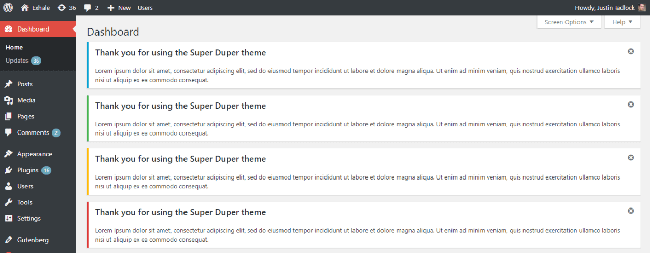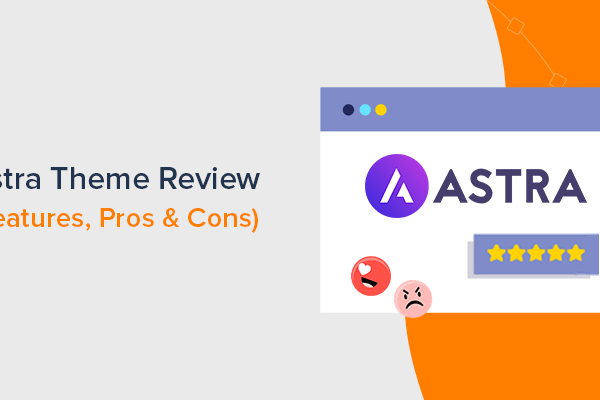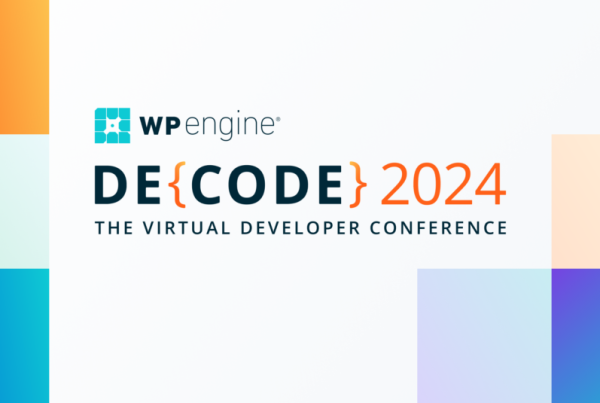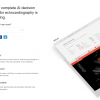Hey there, WordPress fans. After taking a break for a few months, we’re back bringing you the latest WordPress news in our September 2019 edition of The WordPress Update.
If you’re not already familiar with The WordPress Update, it’s our monthly WordPress news roundup where we share everything that’s happening in the WordPress community, as well as our thoughts on the latest stories. Then, we post it here on the blog and send it out to our newsletter subscribers.
If you want to stay on top of the latest WordPress news and make sure you get all the future versions of The WordPress Update, the best thing to do is to sign up for the newsletter.
This month, we got a first look at WordPress 5.3 and the new Twenty Twenty default theme. It’s not ready for primetime quite yet, but you can play around with the beta if you don’t want to wait.
Beyond that, Automattic snapped up $300 million in new funding, which will pay for a lot of WooCommerce and Jetpack development. And if you’ve been relying on Google star review rich snippets, you might want to pay attention to some updates to how Google processes structured data.
Let’s get to all the latest WordPress news from September 2019…
WordPress 5.3 Beta and details
WordPress 5.3 will be the final major WordPress release in 2019.
While it’s not quite ready for release, September did bring us the first beta version, as well as a look at what new features to expect.
So what’s coming in WordPress 5.3?
First off, there are a bunch of changes to the block editor (Gutenberg). WordPress 5.3 will include features from the last 12 releases of the Gutenberg plugin. The Gutenberg plugin is separate from the core editor and gets new features before the core.
Some of the biggest changes come in the form of layout improvements. You’ll get a new Group block to group together large sections of content as well as improvements to the native Column block. For example, you’ll be able to change column widths.
You’ll also get a new block inserter panel, a typewriter experience, improved accessibility navigation, easier image replacement, and plenty more.
So if you’re one of the people using the block editor, you’ll like the new release.
Other new features include:
- Automatic image rotation when you upload improperly-oriented images (great for iPhone users!).
- Support for resuming uploads on large files.
- Improvements to the Site Health project.
- Fixes for the Time/Date component.
- Compatibility for PHP 7.4.
- A new admin email verification screen that will ask you to confirm your admin email every six months.
The development team is currently targeting November 12 for the release date. But as with any release, that date could definitely change between now and then.
And oh yeah – WordPress 5.3 will also bring the next iteration of the default WordPress theme – Twenty Twenty. Speaking of…
New Twenty Twenty WordPress theme (and it looks great)
For the longest time, I always viewed the default WordPress theme as something that just came with WordPress – not something I would ever use.
The upcoming default theme – Twenty Twenty – might be the first theme that breaks that.
But first – some backstory.
The design lead for the new Twenty Twenty theme is Anders Norén. Even if you don’t know his name, you’ve probably seen Anders’ work because he’s responsible for a bunch of popular free themes at WordPress.org like Hemingway and Baskerville.
Rather than starting from scratch, the Twenty Twenty theme will be based on the Chaplin theme, which is one of Anders’ existing themes.
Enough background – here’s your preview of the new Twenty Twenty theme…
Here’s a look at a sub-page:
And here’s a look at a blog post:
Like the Twenty Nineteen theme, Twenty Twenty is specifically built to play nice with the WordPress block editor (Gutenberg).
Again, Twenty Twenty will be available for use when WordPress 5.3 ships in November. If you don’t want to wait until then, you can also check it out if you install the beta version of WordPress 5.3.
WordPress theme review team restructuring
In August, the WordPress Theme Review Team opted to scrap its Trusted Authors program due to problems with inconsistent reviews and gaming the system.
The system tried to speed up approval times for themes at WordPress.org, but, in the words of Trusted Author Program team lead William Patton, “It has not fulfilled the intended plan and has caused more problems than it is solving”.
Now, there are some more shake ups in September, with the Theme Review Team restructuring its administrative duties to move towards a flat structure.
Fighting back against annoying WordPress admin notices
Between your WordPress theme and any plugins that you might be using, you’ve probably experienced the annoyance that is a bombardment of notifications from your various extensions in your WordPress admin dashboard.
To cut back on the clutter, the Theme Review Team released new guidelines for themes that want to be listed in the WordPress.org Theme Directory. Those themes will have to use the official admin_notices API, which means they can no longer display those huge custom admin notices.
On the back of those changes, the Theme Review Team also released a potential admin notices solution that helps theme developers add unobtrusive admin notices.
Here’s an example of the kind of notifications that the package helps developers create:
Long story short, you should (hopefully) experience fewer annoying custom admin notices going forward, at least if you use themes from WordPress.org.
Google changes how it handles review rich results
Getting eye-catching review stars for your website in Google search results is a great way to improve your site’s organic search CTR…which is why some webmasters started abusing it and were adding review structured data to content where it didn’t fit.
To combat this, Google made some changes to how it handles review rich results.
Now, Google will only display reviews for certain schema types because “reviews that can be perceived as “self-serving” aren’t in the best interest of users.”
So if you noticed that your WordPress site suddenly lost its rich results in September – this is probably why.
In related news, Google will also start letting you know about issues with structured data in Google Search Console.
If you’ve verified your WordPress site with Google Search Console, you should head on over and see if you have any warnings.
Automattic raises $300 Million in Series D Investment
Automattic, the company behind WordPress.com as well as popular WordPress plugins like WooCommerce and Jetpack, just raised another funding round.
Specifically, Automattic raised $300 million from a single investor, Salesforce Ventures. This brings Automattic’s valuation to $3 billion (yes – that’s a “b”).
Automattic’s previous fundraising round was back in 2014, where Automattic raised $160 million at a $1.16 billion valuation.
This new funding round comes on the heels of Automattic’s acquisition of Tumblr back in August.
Ongoing malvertising campaign evolves, adds backdoors and targets new plugins
Near the tail-end of August, Wordfence reported on a really malicious attack that was targeting WordPress sites using vulnerabilities in a number of different plugins including:
- Bold Page Builder
- Blog Designer
- Live Chat With Facebook Messenger
- WP Live Chat Support
- Yuzo Related Posts
- Hybrid Composer
- …and others.
As of the beginning of September, the attack is still ongoing. Though many of these developers have since fixed the vulnerabilities in their plugins, your site could be vulnerable if you’re still using an outdated version of a plugin.
So – make sure to apply those updates, folks! Updating helps keep your site safe and secure.
Chrome 76 adds native lazy loading support (and Google makes a plugin)
In late August, Chrome 76 was released with a new native lazy loading feature to help website developers easily defer loading assets.
To coincide with this release, Google released its own official Native Lazyload plugin at WordPress.org. The plugin is super simple to use – you just activate it and it starts working.
Reviews seem to be mixed so far, but it’s worth checking out if you want to experiment with native lazy loading on your WordPress site.
WordPress governance project looking for new leadership
Finally, in early September, the WordPress Governance project announced that it was searching for new leadership after Morten Rand-Hendriksen and Rachel Cherry, the current leaders, announced that they were stepping down.
If you want to learn more about the project and how it’s been received by the WordPress community, check out this great WP Tavern article (and its comment section).
And that wraps up all of the most important WordPress news and articles from September 2019.
Make sure to subscribe to the newsletter by using the box below. And also check back next month for all the exciting news that’s bound to drop in October.
















